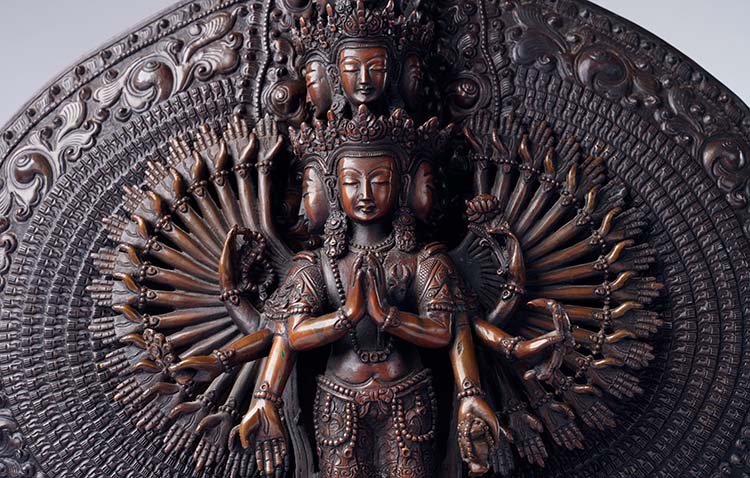Understanding Intelligent vs Blind Faith
Category: Buddhist Path

Blind Faith is Discouraged (What We Can Learn from The Buddha?)
Some people have difficulty with the word faith, and understandably so. It’s ok to be cautious of blind faith, which can leave us vulnerable to getting duped or disappointed by people or ideas who may not be worthy of our trust. And yet, faith is an important factor in our meditation practice and considered a foundational virtue of the Buddhist path. So, what’s the difference between faith and blind faith, and how can we protect ourselves by learning to discern between the two?
The Buddha taught about faith on multiple occasions. These teachings are recorded in a number of sutras which use the term saddha in the Pali language, or shraddha in Sanskrit. We often define shraddha as faith, but its meaning also relates to trust, confidence, drive or purpose.
In his teachings on shraddha, the Buddha encourages us not to passively accept what he says, but to actively contemplate the teachings, to incorporate them into our daily practice and closely examine them.
O monks and scholars,
As gold is tested by burning, cutting and rubbing,
Examine my words thoroughly
And accept them only then—not just out of respect for me.
My teaching is not a philosophy. It is the result of direct experience.
My teaching is a means of practice, not something to hold onto or worship.
This popular quote from the Gaṇḍavyūha Sutra serves to remind us that faith is not the goal, but an action, a process and part of the path.
Simply listening to teachings on Buddhist meditation, mindfulness and well-being will not change our lives, even if we decide we agree with them. It’s only by putting these teachings into practice that we can experience their transformative power, and thereby truly understand them. And yet, some faith in the teachings is required if we are to begin. Like the age old story of the chicken and the egg, faith motivates us to practice, while practicing grows our faith.
Intelligent Faith is Encouraged
Intelligent faith is evidence-based. This does not refer to evidence that comes from academic papers and research studies (although that can be helpful) but to evidence that arises from our own direct experience. The active, experiential type of faith we come to rely on is a faith that’s imbued with wisdom.
Wisdom, in the Buddhist context, has a particular significance. Wisdom refers to an embodied, experiential awareness of the true nature of reality. One that goes beyond our current logical, conceptual understanding. Thus, in the Kesamutti Sutta, the Buddha asks us not only to thoroughly examine and test his words, but to do the same with our inner experience of them.
“In this case, Kalamas, don’t go by reports, by legends, by traditions, by scripture, by logical deduction, by inference, by analogies, by agreement through pondering views, by probability, or by the thought, ‘This contemplative is our teacher.’”
Paradoxically, this too, requires faith. We trust that in our current state of mind, it’s possible that we cannot see the whole picture. With our minds clouded by mental afflictions and past conditioning, what appears to us as an intelligent conviction could be mistaken. The invitation therefore, is to move beyond belief or disbelief, agree or disagree, right or wrong, and stay open, curious and mindful. This is a wider notion of spirituality.
What Does Intelligent Faith Believe In?
By remaining open, mindful and aware, we can hold space for both belief and disbelief. Faith and doubt are not at odds with one another, but both important to carry with us as we walk the path.
- Faith in the teachings allows us to trust that an end to our suffering is possible. With this confidence we commit to taking refuge in the 3 jewels.
- Faith in the teacher arises as our experience with the practice confirms what we’ve been taught. We’re encouraged to continue along the path.
- Faith in ourselves as beings who are capable of fully awakening develops from faith in the first two.
Confidence in the practice builds not because of blind faith in the teaching and teacher, but because faith, confidence, and trust in ourselves improves.








